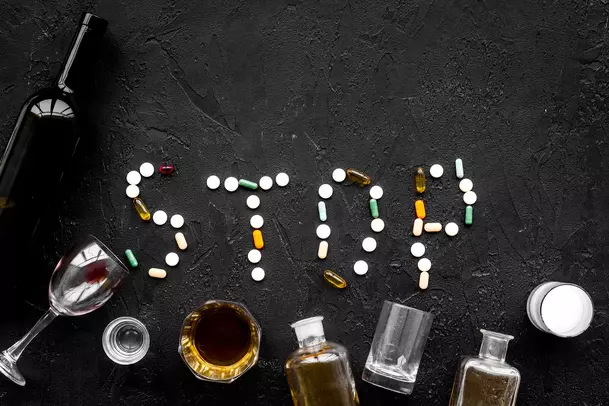Meditation and Overcoming Addiction: 8 Practical Steps to Recovery

Morningside Recovery offers the full-spectrum of comprehensive addiction treatment in Orange County, CA. Take that first step on the road to recovery and make better choices, every day. Meditation also helps improve self-awareness and it can be a useful tool for understanding why you react to certain situations by being stressed out. This can be especially helpful if you have struggled with addiction and are looking for ways to keep away from what’s causing you stress. People in recovery who are constantly stressed often look for quick relief and unfortunately, resorting to drugs and alcohol is often the easiest way to achieve this. However, with regular meditation, you can find relief from stress without turning to addictive substances.
How Social Support Can Improve Mental Health Treatment Outcomes

Mindfulness practices, particularly meditation, play a pivotal role in reinforcing neural pathways related to emotional regulation and decision-making. Regular involvement in mindfulness facilitates greater connectivity in brain areas responsible for executive functioning, essential for managing cravings and impulsive behaviors related to substance use disorders (SUDs). Moving meditations, such as yoga, empower individuals by integrating physical activity with mindfulness, promoting both mental and physical health. Guided meditation, on the other hand, offers structured help, making it accessible for those new to meditation or recovery.
- Behavioral addiction, on the other hand, involves compulsive engagement in activities such as gambling, eating, sex, or internet use.
- Other benefits of meditation therapy include altering brainwaves, which contribute to improved psychological function and reduced cortisol, the body’s stress hormone.
- People with these conditions may incorporate meditation and other mindfulness practices into their recovery.
- This means that insurance plans sold through the ACA marketplace must cover addiction treatment services, including detoxification, inpatient and outpatient treatment, and aftercare programs.
Meditation Can Help Minimize Anxiety
She has been involved in community education regarding mental health treatment and has published medical literature on a variety of mental health topics. While research shows the specific benefits of mindfulness meditation for people in recovery, if you find that another type of meditation works better for you, use it. While most meditation is not specifically focused on substance abuse recovery, it is possible to find videos and other meditation tools that promote meditation specifically for people in recovery from addiction. One of the key benefits of mindfulness meditation in the journey to sobriety is its ability to help individuals overcome triggers and cravings. When faced with situations or emotions that may typically lead to relapse, mindfulness teaches us to observe these feelings without judgment or reaction.

Managing Cravings and Emotional Distress
Engaging in new, meaningful hobbies can help fill the time once spent on substance use. This activity explores various hobbies, encouraging members to try activities that bring joy and fulfillment, enhancing mental health and enriching life. This activity helps members recognize and label their emotions, providing a foundation for healthy coping strategies. Members discuss ways to handle difficult feelings without relying on substances. These physical health benefits may seem small, but they can make a big difference in your overall recovery. There are many different benefits of meditation, but these are just a few of the most important ones.

Neurocognitive mechanisms targeted by mindfulness
The process of mending these strained relationships is critical as it greatly impacts recovery outcomes. Forgiveness requires personal reflection and the courage to confront one’s own mistakes. This journey can be emotionally taxing as individuals navigate through layers of guilt and shame that often accompany addiction.
It can be done in many forms from concentration meditation, to guided meditations, to mindfulness meditation, to moving meditations and more. Best of all, meditation is free, accessible to anyone, and can improve emotion regulation over the long-term. Mindfulness significantly aids emotional regulation for addiction meditation kundalini individuals in recovery by anchoring them in the present moment. This practice enables individuals to recognize their triggers, cravings, and emotions before they escalate into overwhelming reactions. Meditation techniques can significantly aid in addiction recovery by fostering self-control, reducing stress, and enhancing overall mental well-being. Additionally, meditation may need to be combined with other evidence-based treatments, such as contingency management, to address the multifaceted nature of addiction.
- One of the ways that this can be done is by implementing mindfulness meditation into your recovery plan.
- Victoria has been working in the field of addiction since 2020 and came to Friendly House in September of 2021.
- In this open discussion, members discuss the importance of forgiving themselves and others, allowing them to let go of resentment and cultivate a supportive, forward-focused mindset.
- This nonreactive stance enables individuals to confront and manage their emotional responses, reducing the intensity of triggers.
- These waves of loneliness are common, even if you have a strong support system while in recovery.
Mindfulness is increasingly being recognized as a powerful tool in the battle against substance abuse. This approach, which emphasizes nonjudgmental awareness of the present moment, offers a unique pathway to recovery that complements traditional addiction treatments. By fostering better emotional regulation, enhancing self-awareness, and teaching individuals to manage cravings mindfully, mindfulness presents a promising strategy for reducing substance use and preventing relapse. In this article, we explore the various dimensions through which mindfulness impacts addiction recovery, providing insights into its methodologies, empirical support, and practical applications. Mindfulness and meditation offer powerful tools in the journey to overcoming addiction, supporting individuals through detox and rehabilitation by promoting emotional well-being and reducing stress.

Medications Used in Alcohol Detox to Ease Withdrawal Symptoms
- It encourages a reflective practice that can help individuals navigate their recovery journeys more effectively.
- By staying present in the moment and acknowledging their thoughts without attachment, individuals can navigate through challenging situations with clarity and resilience.
- These techniques not only provide practical skills but also foster a supportive environment that is conducive to long-term sobriety.
- It can also help people manage their emotions, reduce stress, and increase their general awareness.
- Most of our triumphs and struggles occur in the context of relationships, especially our relationship to ourselves.
It teaches mindfulness and promotes self-control, both crucial elements in tackling addiction. By embracing meditation, those in recovery can cultivate resilience, manage stress, and enhance their emotional health, ultimately supporting their journey toward lasting sobriety. Vivian Rubio is a Certified Alcohol & Drug Counselor (CADC II) who possesses extensive experience in addiction treatment. Her personal experience in recovery motivated her to pursue a career in addiction counseling, and she has excelled in her academic and professional pursuits. Vivian graduated with honors from Pierce College in 2018, and her expertise and knowledge in inpatient and outpatient treatment have earned her widespread recognition in the field. With six years of clinical experience in a specialized treatment center, Vivian has recently joined the team at Friendly House and is dedicated to making a difference in the community.
Ultimately, regular practice of these techniques can lead to a sustained recovery experience, marked by enhanced emotional stability and a deeper connection to the present. For heroin addiction people in recovery, underlying mental health conditions that have contributed to the development of their addiction can become another obstacle to overcome in their path to recovery. The goal is to cultivate a greater sense of control, reduce cravings, and develop healthier coping mechanisms to manage the challenges of addiction recovery.
